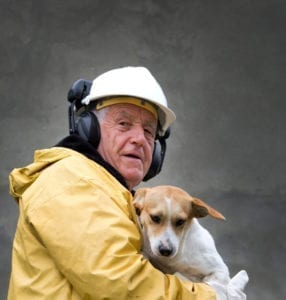 While we all hope a disaster never strikes, it’s still important that we prepare for the unexpected. As many of us know, having an emergency plan in place is the first step when it comes to keeping our family safe in an emergency or natural disaster – but does your plan include consideration for your pets? After all, your pets are family too; and the same planning you make for your human family should be extended to your furry-family as well.
While we all hope a disaster never strikes, it’s still important that we prepare for the unexpected. As many of us know, having an emergency plan in place is the first step when it comes to keeping our family safe in an emergency or natural disaster – but does your plan include consideration for your pets? After all, your pets are family too; and the same planning you make for your human family should be extended to your furry-family as well.
A little common sense when you’re feeling calm and collected can go a long way when it comes to disaster preparedness for pets. However, it’s unlikely that you will think of everything without a little help from your trusted friends at Schertz Animal Hospital…
With that in mind, as you make contingency plans for your beloved pets, be sure to consider the following:
In addition to these tips, the ASPCA offers a comprehensive list of steps that pet owners can take to ensure pets remain safe during a disaster. We encourage you to explore the ideas they suggest and make a plan that works best for you, your family, and your pets.
A disaster can be a traumatic experience for your family, and this is especially for your pets. Never leave your pet behind. Include measures for the safe evacuation of your pet in any disaster action plan and pack supplies that will keep your pet healthy during your time away from your home.
Please let us know if there is any way we can assist you in planning for your pet’s safety. If you need copies of your pet’s medical records, vaccination history, copies of current prescriptions, or to schedule an appointment of any kind, please give us a call. We’re happy to help.
Recent Posts
About Us
We know that choosing the right veterinarian for your pet (and you) can be a challenge. Yet, with our stress-free handling, our long-term, experienced staff, and a state-of-the-art facility, we make the decision an easy one!
